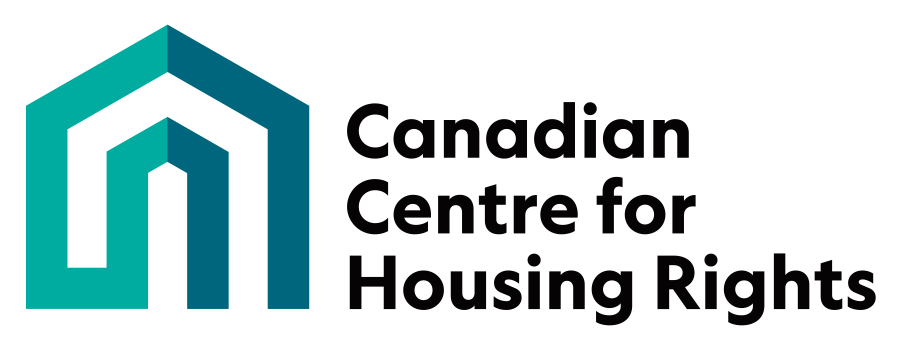This resource was developed by the Canadian Centre for Housing Rights. The original publication can be accessed here.
Finding a new home is one of the most stressful parts of moving to a new country. The Canadian Centre for Housing Rights (CCHR) regularly works with new immigrants to Ontario who have questions about their rights as tenants, and with settlement organizations that offer information to new Canadians.
This page provides tips and resources for newcomers to help them in their search for rental housing in Ontario.

Tips for newcomers searching for rental housing
Spend time in the community you are thinking of living in before you commit to live there longer-term. Most renters in Ontario sign leases with one-year terms, which continue as month-to-month tenancies or are renewed after the first year. If you move into a home and later realize that it does not meet your needs, you may be unable to get out of your lease until at least one year has passed. To help ensure that you choose a neighbourhood where you think you will be happy living, try to spend some time in the community you are interested in and visit any apartment you are considering before signing a one-year lease. Instead of signing a one-year lease as soon as you arrive in the community, you could try living in a short-term rental for a few days, which can give you time to see units and assess the neighbourhood before you decide to enter a longer-term lease.

Try to find a rent-controlled home that was first rented before November 2018. Rent control is a provincial law that sets a maximum amount that rent can be increased each year. Most rental units in Ontario are protected by rent control if they were lived in as a residential home for the first time prior to November 15, 2018. For these units, your landlord can only increase the rent each year by the rental increase guidelines set by the provincial government. In 2023, the province has stated that rent can increase by a maximum of 2.5% in rent-controlled units. For non-rent-controlled units, no such protection applies – rent can be increased once per year by any amount the landlord chooses.
Be careful when sharing a bathroom or kitchen with your landlord. Ontario’s Residential Tenancies Act (RTA) is the law that protects tenants from mistreatment and illegal eviction. However, if you share a kitchen or a bathroom with your landlord, the RTA does not apply to your tenancy. In these situations, you have far fewer legal rights. You could be evicted without legal cause, and your landlord would be able to impose rules that violate the RTA.

Request that the landlord use a standard lease form. The Ontario government has a standard lease form that tenants have a right to request from their landlord. This standard lease helps ensure that landlords do not include terms in your lease agreement that are illegal. For example, landlords cannot demand a rental deposit that is larger than one month of rent, and they must repair broken parts of your unit even if you knew about the problem when you signed your lease. Also, you should not give your landlord your identification documents during the application process, or as a term of accepting a tenancy. If your landlord refuses to provide you with a copy of your lease on the standard form after you request one, you can end your tenancy or withhold one month’s rent.
Do not hesitate to seek help. Many people need support when moving to a new country. Fortunately, there are many excellent organizations that provide free support to ease the process of resettling in Ontario. Below you will find a list of free resources that may be helpful to you.

Resources for newcomers searching for rental housing
The resources listed below are all free to use. In addition to the list below, you can also call 211, which is a free 24-hour helpline that can connect you to thousands of community organizations across Ontario. You can also use their online directory: https://211central.ca/
Services in Ontario:
- Settlement services – assistance in securing housing and employment: https://www.ontario.ca/page/getting-settled-ontario.
- Shelters for women affected by violence – a temporary safe place to live: https://sheltersafe.ca/ontario/
- Food banks – for free food and essential goods: https://feedontario.ca/about-us/find-a-food-bank
- Mental health supports – services for people who are experiencing challenges related to addiction or mental health issues: https://cmha.ca/find-help/find-cmha-in-your-area/
- Legal supports – free legal information for people facing legal trouble:
- Canadian Centre for Housing Rights: https://housingrightscanada.com/our-work/our-tenant-services/
- Local Community legal clinics: https://www.legalaid.on.ca/legal-clinics/
- You can also visit Steps to Justice for information about housing laws: https://stepstojustice.ca/
Services in Toronto:
- Settlement services – for newcomers in Toronto: https://services.settlement.org/en/toronto/settlement-services/
- Temporary shelter – call 311 or find a shelter: https://www.toronto.ca/community-people/housing-shelter/homeless-help/#shelters
- Housing help services:
- The Toronto Housing Help Centre (THHC) can assist you in finding housing in Toronto and York region: https://www.shhc.ca/.
- If you satisfy their income criteria, the Toronto Rent Bank may be able to provide a grant to assist you in paying a deposit for a new apartment, or if you owe rent to your landlord: https://www.toronto.ca/community-people/employment-social-support/housing-support/financial-support-for-renters/toronto-rent-bank/
- Legal Information and Supports:
- Canadian Centre for Housing Rights: https://housingrightscanada.com/our-work/our-tenant-services/
- You can call the Federation of Metro Tenants Association (FMTA) hotline if you live in Toronto for legal information at 416-921-9494 or visit their website: https://www.torontotenants.org/
- Employment services:
- COSTI Employment Services can assist you in securing employment: http://www.costi.org. You can call 416-789-7925 or reach them by email at [email protected]
- Newcomer Women’s Services Toronto helps people of all genders secure employment: https://www.newcomerwomen.org
- Mental health supports: The Canadian Mental Health Association has compiled a list of mental health resources available for newcomers to Toronto: https://toronto.cmha.ca/help-for-newcomers/

The Canadian Centre for Housing Rights (CCHR) is Canada’s leading non-profit organization working to advance the right to housing. CCHR advances the right to housing by serving renters to help them stay housed, providing education and training about housing rights, and advancing rights-based housing policy through research, policy development, advocacy and litigation.







